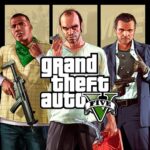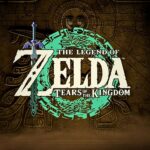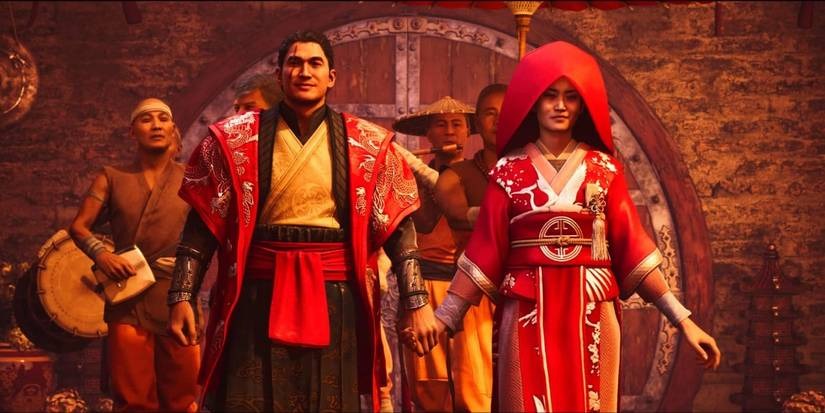Despite Controversial Support Cut, Mortal Kombat 1 Sells Over 6 Million Units to Become This Generation’s Top Fighting Game
Popular Now
 EA SPORT FC 25
EA SPORT FC 25
 Rust
Rust
 Grand Theft Auto V
Grand Theft Auto V
 Brawl Stars
Brawl Stars
 Geometry Dash
Geometry Dash
 The Legend of Zelda
The Legend of Zelda
 Free Fire
Free Fire
 NBA 2K24
NBA 2K24
 Fortnite
Fortnite
 League of Legends
League of Legends 
In a surprising turn of events, Mortal Kombat 1 has officially cemented its place as the best-selling fighting game of the current console generation, a remarkable achievement that comes despite a recent, and highly controversial, decision to cease major content support. The game, a full reboot of the iconic franchise from NetherRealm Studios, has now sold over 6.2 million copies, outpacing its closest rivals, Street Fighter 6 and Tekken 8, by significant margins. This success highlights the immense power of the Mortal Kombat brand and its ability to attract a broad, casual audience beyond the traditional fighting game community. However, the sales milestone is accompanied by a shadow of player disappointment, as the studio’s announcement to halt new DLC and story expansions has left many feeling a sense of betrayal after previous promises of long-term support.
The news, shared by NetherRealm’s chief creative officer and franchise co-creator Ed Boon, confirms a long-held suspicion that Mortal Kombat 1 was performing exceptionally well in the market. While the game’s lifetime sales still trail its predecessors, Mortal Kombat 11 and Mortal Kombat X, which sold over 15 million and 12 million units respectively, its performance against its contemporary competition is undeniable. The fighting game market is fiercely competitive, with a few titans dominating the sales charts. The fact that Mortal Kombat 1 has emerged as the sales champion of this generation, with a strong player base on PlayStation 5, Xbox Series X|S, and PC, speaks volumes about its mass appeal and the enduring fascination with its brutal, over-the-top gameplay.
The Numbers Tell a Story: MK1 Dominates Sales
The sales figures for the top fighting games of this generation paint a clear picture of Mortal Kombat 1’s market dominance. With over 6.2 million units sold, the game stands well ahead of its main competitors:
- Mortal Kombat 1: Over 6.2 million units.
- Street Fighter 6: 5 million units sold.
- Tekken 8: 3 million units sold.
This success is particularly notable given the fighting game genre’s typical sales trajectory. While games like Street Fighter and Tekken have a strong and dedicated competitive following, Mortal Kombat has always been a more casual-friendly experience, with a focus on its cinematic single-player story mode and a compelling roster of characters. The appeal of its guest fighters, which have included iconic figures from pop culture, also contributes significantly to its broad market reach and ability to sell copies long after its initial launch.
However, the sales figures also reveal a significant discrepancy when compared to its immediate predecessors. The lifetime sales of Mortal Kombat 11, which received a longer support window, are nearly triple those of Mortal Kombat 1. This data point, while not detracting from the game’s current-gen success, raises questions about whether the shorter support cycle and more frequent release schedule from NetherRealm Studios are ultimately hindering the long-term sales potential of their titles. The decision to end major support after just 20 months, with a focus on a new project, is a stark contrast to the multi-year support cycles of games like Street Fighter 5 and Tekken 7, and is a major point of contention within the community.
Promises Broken: The End of Major Support Controversy
The announcement that Mortal Kombat 1 would no longer receive new DLC characters or story chapters came as a shock to many fans. Throughout the game’s marketing cycle, Ed Boon and other developers had hinted at an extended period of support, suggesting that the game would have a longer “shelf life” than previous NetherRealm titles. This led to an expectation that the game would receive multiple Kombat Packs and story expansions, similar to the “Aftermath” expansion for Mortal Kombat 11. However, the reality fell short of these promises. The studio confirmed in an official statement that while balance patches and bug fixes would continue, their focus was shifting to their “next project.”
This decision has been met with significant backlash from the community. Many players feel misled by the pre-launch hype and are disappointed that a game with such potential is being left behind so soon. The controversy is compounded by the fact that the game, while critically acclaimed for its core mechanics, was also criticized for a lack of content in its post-launch offerings and a perceived over-monetization of certain features. The early end to its content pipeline, coupled with a Definitive Edition being “shadow-dropped,” has solidified the community’s fears and led to a wave of negative sentiment online.
Despite the controversy, the sales numbers remain a testament to the franchise’s enduring popularity. The core gameplay loop, the rich lore, and the visceral appeal of the Mortal Kombat universe continue to resonate with a massive audience. The game’s success proves that a strong brand and a compelling initial offering can overcome post-launch issues and even a lack of long-term support. While the competitive scene may suffer from a shortened life cycle, the casual audience, which drives the bulk of the sales, seems to be largely unbothered, enjoying the game for its thrilling story mode and a roster of iconic characters.
 What Lies Ahead for NetherRealm and the Fighting Game Scene?
What Lies Ahead for NetherRealm and the Fighting Game Scene?
The success and subsequent controversy surrounding Mortal Kombat 1 raises questions about the future of NetherRealm Studios and the fighting game genre as a whole. The studio’s decision to move on to a new project so quickly, which many speculate to be Injustice 3, suggests a strategy focused on rapid-fire releases rather than prolonged support for a single title. This model, while commercially successful for the publisher, Warner Bros. Discovery, can lead to a fragmented player base and a sense of abandonment among dedicated fans. The fighting game community, particularly the competitive scene, thrives on long-term support and a stable meta. The abbreviated life cycle of Mortal Kombat 1, in stark contrast to its rivals, may lead to it fading from the competitive spotlight much sooner than its peers.
Ultimately, Mortal Kombat 1’s story is a complex one. It is a commercial triumph, a sales juggernaut that has defeated its rivals in the market. At the same time, it is a game whose legacy is tainted by broken promises and a sense of unfulfilled potential. The game has proven that the allure of Mortal Kombat is stronger than ever, but it has also shown the challenges of balancing commercial success with a dedicated, and increasingly vocal, player base. As the studio moves on to its next venture, the fighting game world will be watching closely to see if they can learn from these lessons and deliver a game that not only sells well but also earns the long-term trust of its community.










 What Lies Ahead for NetherRealm and the Fighting Game Scene?
What Lies Ahead for NetherRealm and the Fighting Game Scene?